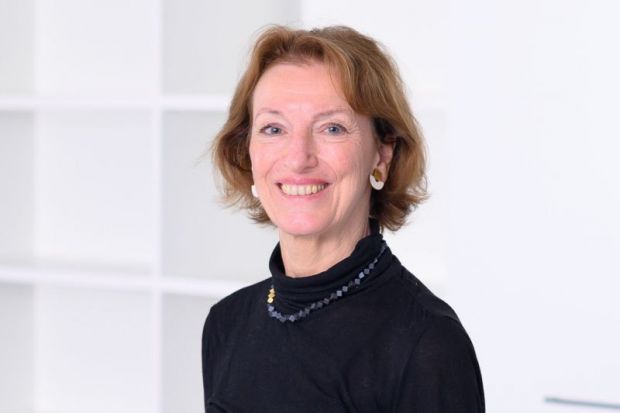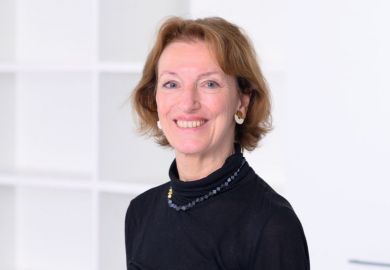European science must “catch up” with China and the US, the president of the European Research Council (ERC) has said.
In January, the ERC called for the European Union to double the budget of its next research and development framework programme, the successor to Horizon Europe, while advising a similar increase to its own funding.
“We often hear that Europe is a leader in research and discovery,” ERC president Maria Leptin told Times Higher Education. “I’m a scientist, I need facts, and if we look at the facts, both China and the US spend significantly more than Europe.”
Professor Leptin highlighted European Commission data indicating that the European Union produces 18.4 per cent of the top 1 per cent most-cited scientific publications, placing it third after the US, with 27.5 per cent, and China, with 23 per cent. “So where are we leading?” she said. “The data says, ‘Hey folks, we’re maybe not as leading as we think we are.’
“We’ve underestimated competition with China and the US in the past,” she continued. “Scientific competition is good – I have no problem with that. Somebody offers a good scientist more money, more freedom, more infrastructure? Great, let them do it. But we can’t pretend it doesn’t exist.”
The ERC has not increased its individual grant value since its inception in 2007, Professor Leptin said. “The applications are hugely competitive, so the funding rates are low. We’re not going to increase the individual grants if there are too many people out there who we’d like to fund,” she said.
“We have far more highly ranked grants than we can fund – and it would be good for Europe if they could be funded.”
In last month’s statement, the ERC said that to “meet its full potential”, it should receive a budget “corresponding to 5 per cent of Europe’s national research agencies”. Based on current figures, that would see its annual budget rise from €2 billion to €5 billion.
While the ERC funds basic research, Professor Leptin told THE that the impact of its funding was easily demonstrable.
“ERC grants are cited proportionally far more often than many others. Results from 40 per cent of our projects are cited in patents,” she said. “If we had more money, there would be more of that knowledge creation.”
“I don’t just argue for fundamental research for the sake of fundamental research. We need to remind people that without this stuff, nothing’s going to happen.”
Professor Leptin stressed that the ERC’s independence must be preserved in the next framework programme, currently known as FP10. “There are plans for unifying further processes, procedures, forms, reporting, application mechanisms, etc. I can understand that from the administrative side,” she said.
“But we have to recognise that the framework programme funds an amazing range of instruments: international, cross-country collaborative projects; start-ups; small and medium businesses involved in research; our bottom-up researchers; grad students and postdocs. How can all of them require the same processes? It just doesn’t make sense.”
“The ERC has an unusual and unique role here in that we have the freedom to determine our own processes. If that is questioned, if our ability to serve the scientific community in the way that it needs is curtailed, that would be counterproductive.”
Professor Leptin said “more flexibility [and] fewer constraints” across all FP10 programmes would encourage more researchers to apply. At present, she said, some academics who were interested in the EU’s targeted “missions”, introduced in Horizon Europe with the goal of finding “concrete solutions to some of our greatest challenges”, were dissuaded by excess bureaucracy.
“I know people who would be happy to apply for funding, and they often say, ‘By the time I’ve jumped through all those hoops, filled out all those forms, done all the reporting I’ll have to do, my idea will be dead in the water, so I’d rather do without that money.’ Researchers in Europe want to participate in the missions, they want to contribute to solving problems, but the mechanisms are not ideal.”
Register to continue
Why register?
- Registration is free and only takes a moment
- Once registered, you can read 3 articles a month
- Sign up for our newsletter
Subscribe
Or subscribe for unlimited access to:
- Unlimited access to news, views, insights & reviews
- Digital editions
- Digital access to THE’s university and college rankings analysis
Already registered or a current subscriber? Login








